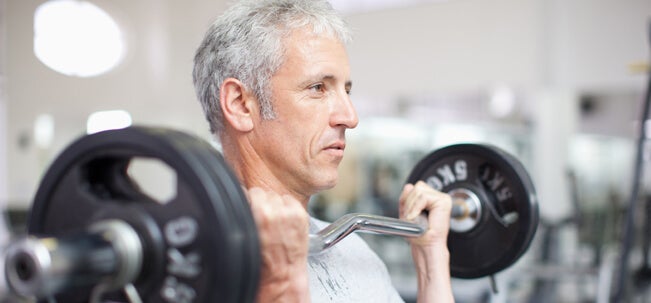Fight tiredness & fatigue
Jul 16, 2019
Increased fatigue as you age?, Nutrients' role in helping to fight fatigue, Changing other habits to fight fatigue, What makes for a good night's sleep?
Increased fatigue as you age?
You went to bed at a reasonable time and had a peaceful night's sleep, but by lunchtime, fatigue strikes; how can this be? What are the good habits that can help ensure you don't feel fatigued? It can be frustrating to live in a constant loop of tiredness for seemingly no reason, but fatigue can become more pronounced with age for a number of reasons. Don't worry, there are steps you can take to regain your zest for life!
Nutritients' role in helping fight fatigue
At any given time, one in five people feels unusually tired, and one in 10 have prolonged fatigue (1). Fatigue can be linked with the habits we get into; some of these habits can be broken by making simple changes. For example do you eat too late, or make excuses for not doing exercise?
What can you do to help reduce tiredness and fatigue? Start by looking at your daily habits, especially your diet. Simple changes can be made by ensuring you are getting enough of the known nutrients that help to reduce tiredness and fatigue such as Vitamins B2, B6, B12, Vitamin C and Iron.
Examples of foods containing:
- Vitamin B2 include eggs, lamb, mushrooms
- Vitamin B6 can be found in wholegrain cereals, poultry, pistachios
- Vitamin B12 is found in eggs, milk, cheese, fish
- Vitamin C is in tomatoes, peppers, broccoli
- Iron is in lentils, tofu, fortified cereals and red meat.
(Learn more about these and other nutrients in our Nutrition Glossary)
Additionally you can try nutritional supplements like Meritene Strength & Vitality which contain good levels of these nutrients.
Changing other habits to fight fatigue
Other considerations that may be impacting your energy levels:
- Do you eat too late? Avoid eating a big meal late at night. Bring dinner forward an
hour. Go out with friends for lunch rather than dinner. - Do you make excuses for not exercising? Exercise doesn’t have to mean going to the gym; it could be as simple as a short walk around the block! Even activities such as making the bed and taking out the bins keep you moving and help your body to feel ready to rest when it's time to go to sleep.
What makes for a good night’s sleep?
As you get older not only may you get into habits that affect your sleep, you may also experience a change in your sleeping patterns (2). For example, you may:
- have several brief awakenings in the night
- have a loss of the deepest levels of non-REM sleep
- nap more in the daytime
Sleep is an important activity for your health and there are several ways you can achieve a good night’s sleep. The Sleep Council has outlined 7 steps for a better night’s sleep(3):
- Your bedroom – ensure it is a clean, peaceful, welcoming room
- Your bed – have a comfortable bed that supports your posture and allows you to have a restful sleep
- Your lifestyle – maintain a regular bedtime routine; do not use technology, i.e. mobile phones before bedtime
- Stress and worry – there is a direct link between anxiety and rhythm of sleep; try to address your anxieties and worries before bedtime
- Diet – eating too close to your bedtime can impact your quality of sleep
- Exercise - Working out effectively tires your body, promoting recovery and a better night’s sleep. In addition, exercise releases pent up tension helping to banish stress before bedtime
- Relaxation and deep breathing – help to promote a deep, restful sleep.
Top tips
- Eat a healthy balanced diet to ensure an adequate intake of nutrients. Nutrients of particular importance for fatigue are Iron, Vitamins B2, B6, B12 and C.
- Maintain an appropriate weight and healthy body. For example, having adequate muscle strength will allow you to maintain everyday activities.
- Anxiety can make you feel more tired. Try to identify what is causing your anxiety and take action to address it.
- Guidelines state that to keep health risks from alcohol to a low level, it is safest not to drink more than 14 units a week on a regular basis. If you wish to cut down the amount you drink, a good way to help achieve this is to have several drink-free days a week (4).
- Try to eat little and often to beat tiredness. A good way to keep up your energy through the day is to eat regular meals and healthy snacks every three to four hours, rather than a large meal less often.
- Although, you might feel too tired to exercise, regular exercise is beneficial. Even a single 15-minute walk can give you an energy boost, and the benefits increase with more frequent physical activity.
Professional advice
Before making major changes to your diet, supplement or exercise routine, you should first consult your doctor, nutritionist or pharmacist. If you have been feeling unusually tired for a prolonged period talk to your GP. Your GP may perform blood tests to rule out any possible physical reasons for your prolonged tiredness such as anaemia and an underactive thyroid(2).
Additional references:





